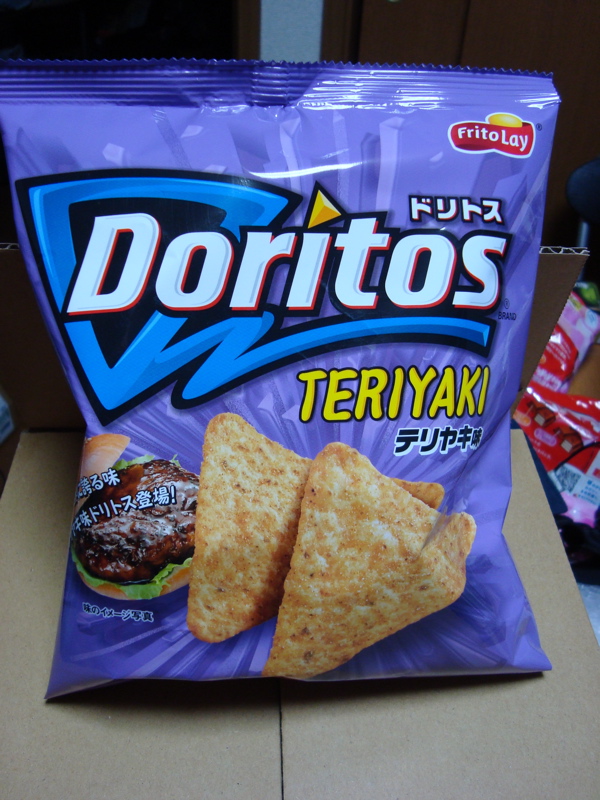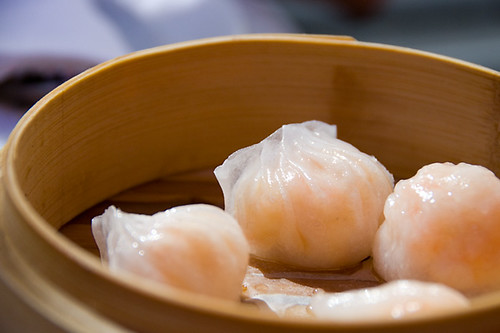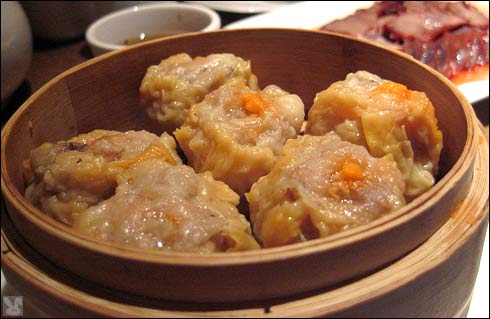きょう、ブログプロジェクトはおわります。
:(
Maybe I'll keep on adding posts anyway though.
Monday, December 13, 2010
Sunday, December 5, 2010
まめしば!!!
My favorite part is the giggle at the end.
Their website, with all the little animation shorts: http://dogatch.jp/mameshibaworld/?red=mameshibaworld
And with subtitles:
Composition #3
わたしはオーサーがけっこんしました。しゅじんはほんおかきます。とてもゆうめいです。わたしたちはやまのうえにいます。うちはとてもおおきいです。さんいんこどもがいます。はたらきません。まいにちうちにいますから、りょうりがじょうずです。まいしゅうパーティーおします。ゆうめいなひとがいます。やまはきれいです。そして、とてもしずかですから、パーティーはにぎやかです。
Monday, November 15, 2010
Katakana Literary Work
Click to enlarge!
"クシュ!" is the onomatopoeia for a sneeze, much like "achoo!" is in English. In general, the use of onomatopoeia in literary works makes the work seem to "come to life," since you can "hear" the sound.
Inspired by Silent Reaper.
Wednesday, November 10, 2010
Katakana Analysis (final)

"ピーチグミ" is used to phonetically translate "Peach Gummy," which is the name of these candies. However, why not simply translate "Peach Gummy" from English to Japanese? Even if "gummy" is a loan word, the Japanese have their own work for "peach." My only hypothesis as to why they chose to use katakana for the entire phrase is not only as a loan word, but also for emphasis.
Just as Western cultures, in many ways, have a fascination with all things Eastern (and therefore, exotic), the Japanese, and by extension, Eastern cultures, have a fascination with the West. The popularity of anime and manga in the US, and Johnny Depp and Brad Pitt in Asia are a testament to this. By choosing to phonetically translate "Peach Gummy," Kasugai (the company that makes these candies) makes them seem "cool."

In contrast, a company name like "Doritos" must be translated phonetically into "ドリトス", since there is no direct Japanese translation, making it purely a loan word. However, the flavor that is described "ガーリック", or "garlic," is technically a loan word (since it is a phonetic translation of "garlic") but the phonetic translation of the English word "garlic" as opposed to using the Japanese word for garlic means it is also used for emphasis, just like "Peach Gummy."
What is particularly interesting is the use of カタカナ even when the word is originally Japanese, as shown with テリヤキ, shown below. In this instance, the use of カタカナ is for emphasis.

And, just like in the US, popular culture is sometimes featured on packaging.

A commenter on my previous post hypothesized that perhaps カタカナ was used because there is not enough "real" garlic, or "real" peaches in the snack to be actually called a "garlic chip," and it is actually a "garlic flavored chip." However, I don't think this is the case, since there is actually 30% of peach juice in the ピーチグミ, and its name is still in カタカナ.
While it is easy to spot that カタカナ is used for onomatopoeia and loan words, the use of カタカナ for emphasis is a bit fuzzier. Perhaps this is because it's much like the English way of using italics to emphasize words or phrases—it is almost entirely up to the author's discretion.
Tuesday, November 9, 2010
Composition #2
やまださん、
こんにちは!わたしはメイリンです。はじめまして。おげんきですか。
わたしはコロンビアだいがくのさんえんせいです。わたしのせんこうはせいぶついこうがくです。とてもむずかしいが、とてもおもしろい。
もう11がつです。わたしのたんじょうびは11がつ30にちです。いまはたちです。
せいがつはいまとてもいそがしいですが、げんきです。
おとといはハルインです。すてきですが。そしてとてもたのしいです。
どぞうよろしく!
メイリン
じゅういちがつとおか
こんにちは!わたしはメイリンです。はじめまして。おげんきですか。
わたしはコロンビアだいがくのさんえんせいです。わたしのせんこうはせいぶついこうがくです。とてもむずかしいが、とてもおもしろい。
もう11がつです。わたしのたんじょうびは11がつ30にちです。いまはたちです。
せいがつはいまとてもいそがしいですが、げんきです。
おとといはハルインです。すてきですが。そしてとてもたのしいです。
どぞうよろしく!
メイリン
じゅういちがつとおか
Tuesday, November 2, 2010
Katakana Analysis Draft

"ピーチグミ" is used to phonetically translate "Peach Gummy," which is the name of these candies. However, why not simply translate "Peach Gummy" from English to Japanese? Even if "gummy" is a loan word, the Japanese have their own work for "peach." My only hypothesis as to why they chose to use katakana for the entire phrase is not only as a loan word, but also for emphasis.
Just as Western cultures, in many ways, have a fascination with all things Eastern (and therefore, exotic), the Japanese, and by extension, Eastern cultures, have a fascination with the West. The popularity of anime and manga in the US, and Johnny Depp and Brad Pitt in Asia are a testament to this. By choosing to phonetically translate "Peach Gummy," Kasugai (the company that makes these candies) makes them seem "cool."

In contrast, a company name like "Doritos" must be translated phonetically into "ドリトス", since there is no direct Japanese translation, making it purely a loan word. However, the flavor that is described "ガーリック", or "garlic," is technically a loan word (since it is a phonetic translation of "garlic") but the phonetic translation of the English word "garlic" as opposed to using the Japanese word for garlic means it is also used for emphasis, just like "Peach Gummy."
What is particularly interesting is the use of カタカナ even when the word is originally Japanese, as shown with テリヤキ, shown below. In this instance, the use of カタカナ is for emphasis.

And, just like in the US, popular culture is sometimes featured on packaging.

While it is easy to spot that カタカナ is used for onomatopoeia and loan words, the use of カタカナ for emphasis is a bit fuzzier. Perhaps this is because it's much like the English way of using italics to emphasize words or phrases—it is almost entirely up to the author's discretion.
Monday, October 11, 2010
わたしのしゅうまつ
わたしのかれはきにょうびにきました。どようびにともだちと Flushing えいきました。Dim Sum たべました。おいしいい!



けいにくのあし!
それから、ともだちと Korea Town (K-Town) えいきました。のみました。



けいにくのあし!
それから、ともだちと Korea Town (K-Town) えいきました。のみました。
Tuesday, October 5, 2010
World Order in NYC
Earlier I posted the synchronized running video without really knowing what group did it, where they were, etc. but a friend recently sent me another one of their videos, where they're dancing around New York.
So cool.
So cool.
Monday, October 4, 2010
It's Illegal to be Fat in Japan
Thanks to an anti-obesity law passed last year, Japanese salarymen across the nation are pulling up their shirts to have their guts measured... and if they're overweight, they face consequences.
If you're male and your waist is over 33.5 inches, you're considered fat. If you're female, the limit is 35.4 inches. Thanks to those burgers, you now have to attend mandatory counseling with a physician. For every grotesquely obese employee like yourself, your company gets hit by a fine; ergo, they strongly encourage you to lose weight with gifts of gym memberships and pedometers.
The goal of all this is to prevent Japan from experiencing an obesity epidemic like so many other industrialized nations. The theory is the less overweight people you have, the lower health care costs will be across the board. Although I think the waistline restrictions are a bit strict (how is a six foot tall foreigner supposed to have a 33-inch waist?), this seems like a good idea overall. America could certainly benefit from less junk in the trunk... but would such a system work here?
http://current.com/news/91443187_its-illegal-to-be-fat-in-japan.htm
I agree with the basic concept behind the law, but the blanket rule of measuring waists without taking into account height at all is moronic. At least use BMIs or something.
〒
So I added a 〒 sign to my blog name, since that's apparently the symbol for a post office in Japan.
I have a bio midterm tomorrow I'm not too keen on studying for because I took so much bio in high school it's just tiring now. Sigh.
Anyways, the real purpose of this entry is to reveal my favorite Japanese band, who unfortunately disbanded in 2005.
BUT WHO APPARENTLY REFORMED IN 2008 ACCORDING TO WIKIPEDIA?!
Okay, well, more research will need to be done.
This is my favorite song by them though. I found it (rather embarrassingly, now that I think back on it) because of the anime InuYasha, which used this as an ending song.
No embedding, unfortunately.
http://www.youtube.com/watch?v=qIoDWTF0qSo
PS: I recently bought a Harry Potter poster from eBay AND I'M REALLY EXCITED FOR IT.
I have a bio midterm tomorrow I'm not too keen on studying for because I took so much bio in high school it's just tiring now. Sigh.
Anyways, the real purpose of this entry is to reveal my favorite Japanese band, who unfortunately disbanded in 2005.
BUT WHO APPARENTLY REFORMED IN 2008 ACCORDING TO WIKIPEDIA?!
Okay, well, more research will need to be done.
This is my favorite song by them though. I found it (rather embarrassingly, now that I think back on it) because of the anime InuYasha, which used this as an ending song.
No embedding, unfortunately.
http://www.youtube.com/watch?v=qIoDWTF0qSo
PS: I recently bought a Harry Potter poster from eBay AND I'M REALLY EXCITED FOR IT.
Tuesday, September 28, 2010
べんきょうします。。。
きのわたしごじはんからごぜにょじまでべんきょうしました。
But such is the life of an engineer, I suppose...
And I had an hour and a half meeting in there, so it wasn't exactly straight from 5:30PM to 4AM.
Tonight isn't looking much better. I have a problem set and lab report due tomorrow, as well as my daily vocabulary quiz in にほんご!
真辛苦。。。
The worst part is, this isn't even as busy as I will be later in the semester/next semester.
T___T
So here's a fun video:
From here: http://wimp.com/synchronizedrunning/
But such is the life of an engineer, I suppose...
And I had an hour and a half meeting in there, so it wasn't exactly straight from 5:30PM to 4AM.
Tonight isn't looking much better. I have a problem set and lab report due tomorrow, as well as my daily vocabulary quiz in にほんご!
真辛苦。。。
The worst part is, this isn't even as busy as I will be later in the semester/next semester.
T___T
So here's a fun video:
From here: http://wimp.com/synchronizedrunning/
Sunday, September 26, 2010
Monday, September 20, 2010
Thursday, September 16, 2010
Choices, Decisions...
I suppose it's quite strange for a third year engineering student (biomedical, no less!) to be taking first year Japanese. To be honest, I don't really know what I was thinking myself. Between my engineering classes and my extracurriculars, I don't really need a language class on top of all of that. But I figured if I'll ever have a chance to take whatever I want, it might as well be now (when I am young and able).
I spent a lot of time deciding between Korean and Japanese. Many of my friends are Korean, and I had been part of the Korean Students Association's Culture Show board the past two years. But in eighth grade, in the midst of my anime/manga phase, I promised myself that I would take Japanese in college since my school only offered French, Spanish, and German (I took French).
And there is really no feeling like fulfilling a seven year promise to yourself.
I spent a lot of time deciding between Korean and Japanese. Many of my friends are Korean, and I had been part of the Korean Students Association's Culture Show board the past two years. But in eighth grade, in the midst of my anime/manga phase, I promised myself that I would take Japanese in college since my school only offered French, Spanish, and German (I took French).
And there is really no feeling like fulfilling a seven year promise to yourself.
こんにちは!
これはわたしのブログです!
はじめまして!マイリンです。
わたしはコロンビアのだいがくのさんねんせいです。
わたしのせんこうわせいぶついこうがくです。
ちゅごくじんです。
プィラデルプィアからきました。
わたしはにじゅうさいです。
どうぞよろしく!
はじめまして!マイリンです。
わたしはコロンビアのだいがくのさんねんせいです。
わたしのせんこうわせいぶついこうがくです。
ちゅごくじんです。
プィラデルプィアからきました。
わたしはにじゅうさいです。
どうぞよろしく!
Subscribe to:
Posts (Atom)





